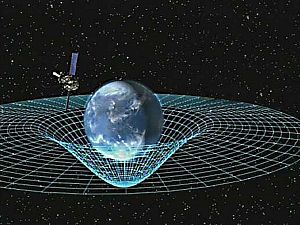 |
| Gravity curving the fabric of space |
Gravity is a constant force that influences material interactions, which in turn affect gravity itself. It governs the movement of objects and influences the posture of living beings, including plants and animals. However, we often take gravity for granted, becoming aware of it only when we lose our balance or accelerate.
Gravity underlies material existence, while temporal gravity provides a stable foundation for our mental world and shapes our temporal or emotional gravity. Like gravity, which is pressure formed inside massive objects, beyond a supportive social net, temporal gravity is the stress of expectations and restrictions (temporal pressure). Emotional gravity is influenced by the social environment. Although the constant change of low temporal gravity can undermine security and may even lead to madness, massive temporal gravity is constricting. As density and mass characterize material structures, emotional gravity forms a hierarchical society, and people rise or fall in social position based on their emotional gravity.
Characteristics of high temporal gravity:
- Critical of change
- Lack the patience to finish projects
- Use highly repetitious language
- Insecure and vulnerable to cheating
- Prone to emotional swings (aggravation followed by regret)
Emotional gravity varies based on individual characteristics and evolves with age. Young people's lighter emotional gravity provides flexibility and resilience, enabling them to adapt quickly to changes, including fashion trends. Temporal gravity increases with age, softening the intensity of emotions, i.e., the gap between joy and pain. Due to the stability of temporal gravity over time, it supplies the energy to cling to and preserve old habits, relationships, and possessions.
People with high emotional gravity often resort to criticism in an inherent search to test the environment's temporal limitation. Deterministic brain frequencies form a highly uncertain mental landscape that demands constant reassurance. The need to increase control can lead to abusive tendencies, such as gaslighting. Gaslighting, named after a film with the same title, is the intentional creation of insecurity by falsifying reality.
Opposite to gravity, belief and trust are sources of emotional strength and prerequisites of intellect, permitting positive emotional states. Even suffering and pain have a meaning for them. Belief is inner confidence of trust, which gives courage and inspires selflessness and altruism. Even in difficult, adverse consequences, it permits adherence to moral principles. Belief is the stable intellectual ground on which to formulate a system of thought in the mind. Does your worldview support your goals with trust and confidence or undermine your future by filling you with hesitation and fear?
Learn more about the physical foundation of consciousness on my YouTube channel.
No comments:
Post a Comment